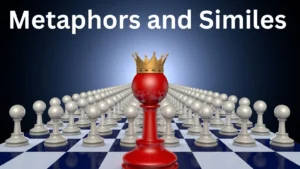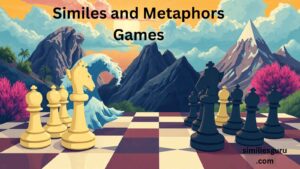The night has always been a source of inspiration for poets, writers, and dreamers. Its mysterious beauty, quiet serenity, and endless expanse have been captured in countless ways through language. One of the most effective literary devices to describe the night is the simile, which draws comparisons between the night and other elements to evoke vivid imagery and emotions. In this article, we’ll explore 25 similes for night, provide examples of similes in poems for kids, and offer casual alternatives to the phrase “similes for night.” Additionally, we’ll include 10 texting examples that are user-friendly and optimized for Google.
What is a Simile?
A simile is a figure of speech that compares two different things using the words “like” or “as.” It’s a powerful tool in writing and poetry because it helps readers visualize and connect with the subject on a deeper level. For example, saying “The night was as dark as coal” paints a clearer picture than simply stating “The night was dark.”
Why Use Similes for Night?
The night is a versatile subject that can evoke a wide range of emotions—peace, mystery, fear, or romance. Similes allow writers to convey these emotions effectively by comparing the night to relatable objects or experiences. Whether you’re writing a poem, a story, or even a text message, similes can add depth and creativity to your language.
25 Similes for Night
Here are 25 creative similes to describe the night:
- The night was as dark as a raven’s wing.
- The night stretched out like an endless ocean.
- The night was as quiet as a whisper.
- The night wrapped around me like a velvet blanket.
- The night was as mysterious as a forgotten dream.
- The night sparkled like a diamond-studded sky.
- The night was as still as a painting.
- The night fell like a curtain on a stage.
- The night was as deep as an abyss.
- The night glowed like a lantern in the distance.
- The night was as cool as a gentle breeze.
- The night enveloped the world like a shadow.
- The night was as serene as a sleeping child.
- The night shimmered like a lake under moonlight.
- The night was as vast as the universe.
- The night crept in like a silent thief.
- The night was as black as ink.
- The night unfolded like a story waiting to be told.
- The night was as peaceful as a lullaby.
- The night sparkled like a thousand fireflies.
- The night was as endless as time itself.
- The night was as haunting as a ghost’s whisper.
- The night was as calming as a mother’s touch.
- The night was as magical as a fairy tale.
- The night was as timeless as the stars.
Examples of Similes in Poems for Kids
Similes are a great way to introduce children to the beauty of language and poetry. Here are some examples of similes in poems for kids that describe the night:
- “The moon was like a silver coin, shining bright above the trees.”
- “The stars were like tiny diamonds, scattered across the sky.”
- “The night was as quiet as a mouse, not a sound could be heard.”
- “The darkness wrapped around me like a cozy blanket.”
- “The night sky was as black as a cat’s fur.”
- “The moon hung in the sky like a glowing lantern.”
- “The stars twinkled like little fairy lights.”
- “The night was as still as a frozen lake.”
- “The wind whispered through the trees like a secret.”
- “The night was as magical as a dream.”
These examples are simple yet evocative, making them perfect for young readers.
Casual Alternatives to “Similes for Night”
If you’re looking for casual or modern ways to describe the night without using the phrase “similes for night,” here are some alternatives:
- “Ways to describe the night creatively.”
- “Comparing the night to other things.”
- “Creative metaphors and similes for nighttime.”
- “How to paint a picture of the night with words.”
- “Describing the night in poetic ways.”
- “Nighttime imagery and comparisons.”
- “Expressive ways to talk about the night.”
- “Using comparisons to describe the night.”
- “Nighttime descriptions that spark imagination.”
- “Figurative language for the night.”
These alternatives are more conversational and can be used in blogs, articles, or even casual conversations.
Nuances of Tone in Describing the Night
The tone you use to describe the night can vary depending on the context. Here’s how to choose the best alternative depending on the situation:
- Romantic Tone: Use soft, glowing imagery. Example: “The night was as enchanting as a lover’s embrace.”
- Mysterious Tone: Use dark, elusive comparisons. Example: “The night was as cryptic as an unsolved riddle.”
- Peaceful Tone: Use calm, soothing language. Example: “The night was as tranquil as a still pond.”
- Fearful Tone: Use eerie, unsettling imagery. Example: “The night was as ominous as a storm cloud.”
- Playful Tone: Use light, whimsical comparisons. Example: “The night was as fun as a carnival.”



